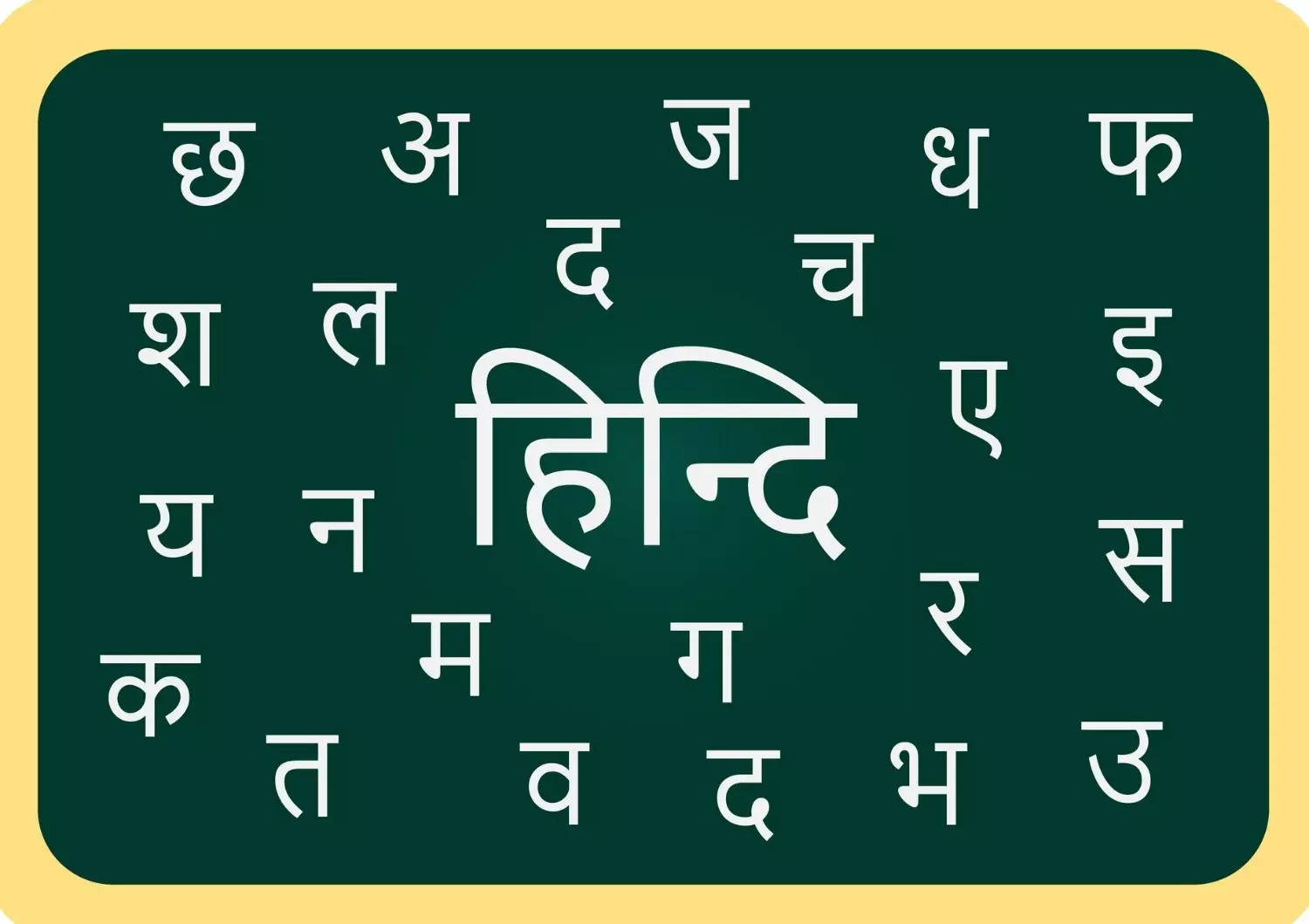
3-language formula: 1.42 lakh Class 10 Karnataka students fail in Hindi this year
In the March-April 2025 exams, 7,21,782 students appeared for the third language Hindi paper, of which 5,79,382 passed, while 1,42,400 failed

The Tamil Nadu Education Minister Anbil Mahesh Poyyamozhi’s recent remark that the imposition of Hindi by the Centre has led to many students in Karnataka failing in the subject has triggered a major controversy. It has reignited debates on whether the three-language or two-language formula is even necessary in the state.
Also read: Three-language formula: A bridge to nowhere
Earlier, the number of students failing Hindi in the SSLC (Class 10) exam was reported as 90,000. However, upon reviewing official statistics from the Karnataka School Examination and Assessment Board, it turns out the actual number is even higher.
Over 1.42 lakh fail in Hindi
The updated official data reveals that more than 1.42 lakh students failed the Hindi paper in the 2024-25 SSLC examination, not just 90,000. According to the Board, 19.72 per cent of the students who took Hindi as a third language failed.
Also read: Discussion | ‘English is power’: Rahul slams Shah’s ‘shame’ remark
In the March-April 2025 exams, 7,21,782 students appeared for the third language Hindi paper, of which 5,79,382 passed, while 1,42,400 failed.
Tamil Nadu Education Minister had stated that the failure of around 90,000 students in Karnataka was evidence of the Centre’s failed language policy. The confirmed numbers now seem to support his claim.
Lack of focus and resources in Hindi education
Board officials say such results are typical, with an average of over one lakh students failing each year, due to various factors. However, it is also acknowledged that the education department has not paid enough attention to the issue.
Also read: Hindi will spread on its own if people stop pushing it down reluctant throats
The minister’s statement has sparked discussions about removing Hindi as a third language in Karnataka. Parents and students reportedly don’t take Hindi seriously and treat it only as an exam subject, which contributes to poor results.
Since English plays a crucial role in shaping careers, most parents prioritise it. Kannada, being the mother tongue, is naturally prioritised in schools. Hindi is treated just as another subject — its inclusion is a result of the three-language policy. Many education experts argue that Hindi is unnecessary without this policy.
Teacher shortage hampers Hindi education
Karnataka’s government schools face a severe shortage of Hindi teachers. Out of 5,060 sanctioned positions, only 3,532 are filled, while 1,528 remain vacant. As a result, Hindi education from grades 5 to 10 in government schools suffers in quality.
The root cause of this shortage is irregular recruitment. The state government often hires temporary or contract-based teachers instead of appointing qualified professionals to permanent positions. Guest teachers, who are hired for just a year, struggle to understand and meet student needs and rarely build rapport, which affects learning outcomes.
What expert said about three-language policy
Speaking to The Federal Karnataka, educationist Dr. V.P. Niranjanaradhya stated that language should not become a barrier to learning. He called the three-language formula impractical and recommended reverting to a two-language policy.
“Kannada is mandatory to ensure command over the mother tongue, and English is essential for shaping a child’s future,” he said. “Children should be allowed to choose a second language they are comfortable with. In the North, southern languages weren’t adopted post-implementation of the three-language formula, whereas in the South, the policy was followed. Hence, the imposition of Hindi is not justified.”
Dr. Niranjanaradhya added that since the three-language formula wasn’t properly implemented across India, the country should shift back to a two-language system.
KDA chief advocates two-language policy
Purushottam Bilimale, Chairman of the Kannada Development Authority (KDA), stated that Karnataka needs a two-language formula to promote Kannada and increase job opportunities for Kannadigas. He emphasised the need for English for external communication — both within India and globally.
He warned against the rising imposition of Hindi in recent years and called for vigilance to prevent the erosion of Kannada. According to him, the three-language formula has led to continued efforts to impose Hindi on non-Hindi speakers.
He concluded that a two-language formula would better support Kannada language development and job prospects for Kannadigas while also ensuring national unity and a balanced multilingual identity.
(This article was originally published in The Federal Karnataka)

